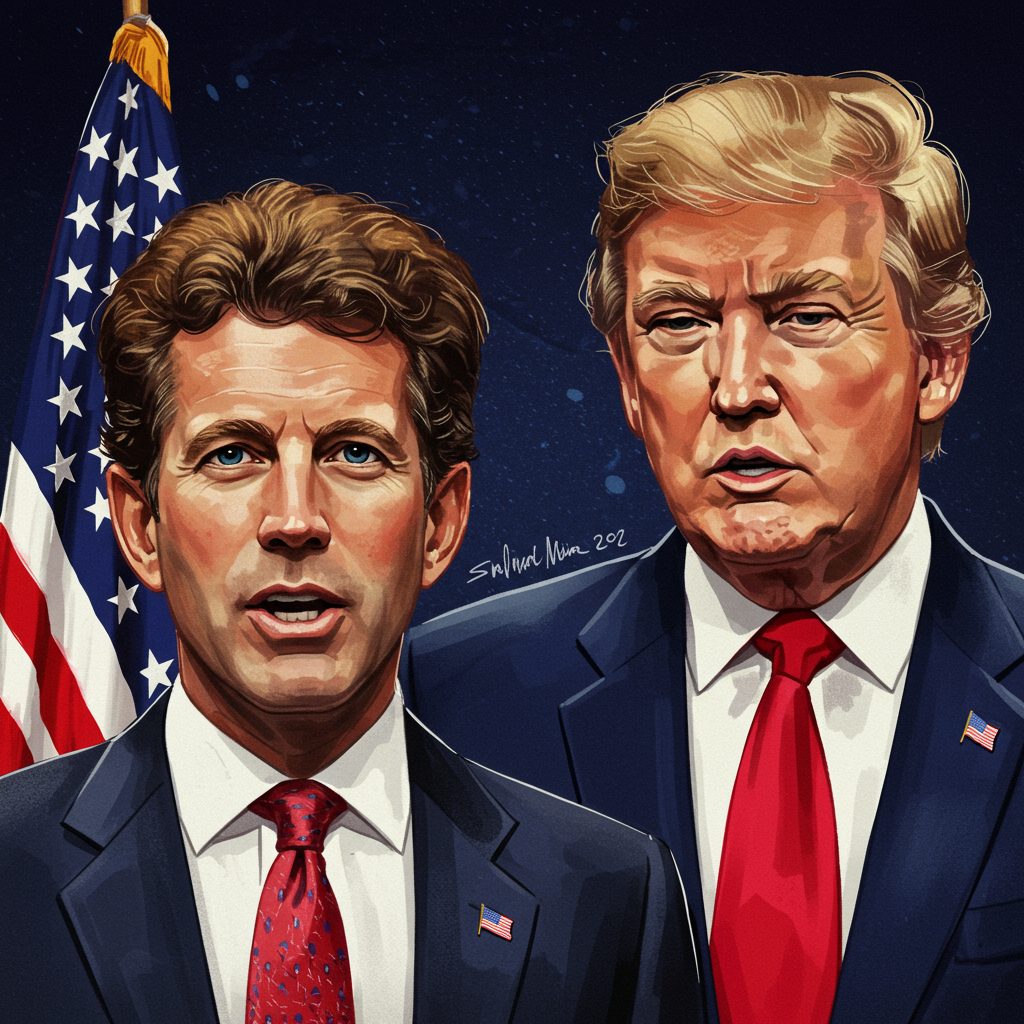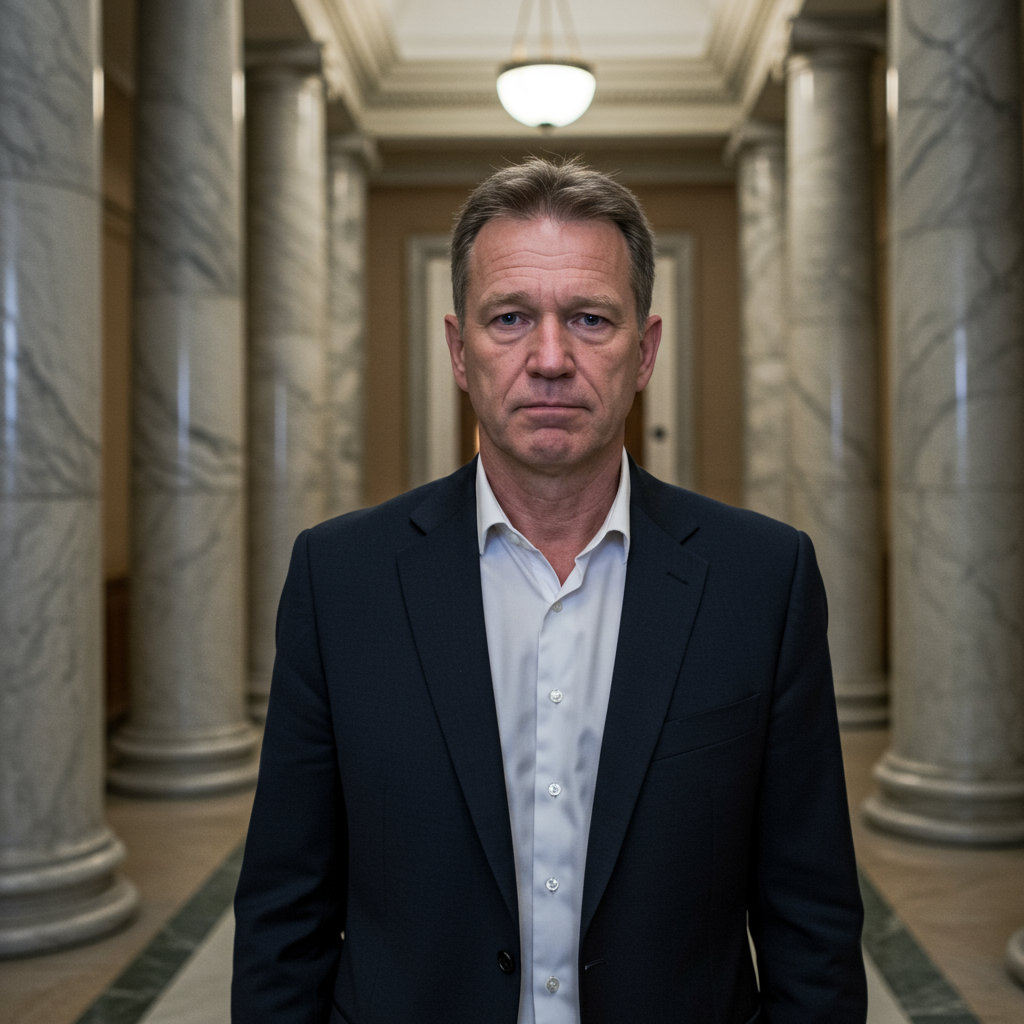The landscape of U.S. public health policy is undergoing a dramatic transformation, particularly concerning groundbreaking mRNA vaccine technology. Once hailed as a “medical miracle” by former President Donald Trump and his administration, this innovative platform now faces a stark reversal under a hypothetical second Trump term, led by Health Secretary Robert F. Kennedy Jr. This significant shift, marked by the cancellation of substantial federal funding for mRNA vaccine development, raises crucial questions about future pandemic preparedness and the direction of biomedical innovation in America.
mRNA technology, recognized by the 2023 Nobel Prize in Physiology or Medicine, proved pivotal during the COVID-19 pandemic, saving millions of lives and fundamentally altering global health responses. Yet, its future in the U.S. is now uncertain, creating a clear ideological divide between past and potentially future governmental approaches to public health.
A Pivotal Era: Operation Warp Speed and mRNA’s Rise
During his first term, President Donald Trump championed the rapid development of COVID-19 vaccines, particularly those utilizing mRNA technology. Upon the emergency authorization of the Pfizer-BioNTech vaccine in December 2020, Trump famously declared it a “medical miracle.” He underscored its significance as “one of the greatest scientific accomplishments in history,” predicting it would “save millions of lives.” This strong endorsement set the tone for his administration’s approach to combating the pandemic.
The Genesis of Operation Warp Speed
Launched in May 2020, Operation Warp Speed (OWS) was a critical public-private partnership. Its ambitious goal was to accelerate the development, testing, manufacturing, and distribution of COVID-19 vaccines, therapeutics, and diagnostics at unprecedented speed. This initiative narrowed over 100 vaccine candidates down to fewer than ten for government funding and support. Alex Azar, Trump’s Health and Human Services Secretary, later called OWS his “biggest achievement,” highlighting the remarkable eight-week journey from SARS-CoV-2 genetic sequence discovery to human trials, a process facilitated by a decade of prior collaboration on mRNA technology with Moderna.
Trump’s public health officials consistently echoed this enthusiasm. Secretary Azar described mRNA vaccines as “safe and extraordinarily effective,” and “shockingly effective.” Dr. Jerome Adams, then-Surgeon General, urged Americans to get vaccinated, signaling hope for an end to the crisis. Even after leaving office, these officials maintained their support for the technology that emerged from OWS. Dr. Robert Redfield, Trump’s CDC director, referred to mRNA COVID-19 vaccines as “extremely safe” and a “light at the end of the tunnel,” emphasizing data and science as guiding principles. Top officials, including Dr. Anthony Fauci and Dr. Francis Collins, publicly received vaccines to bolster public confidence in their safety and efficacy.
RFK Jr.’s Reversal: Halting mRNA Vaccine Development
A sharp departure from the previous administration’s stance has emerged under Robert F. Kennedy Jr., the current Health Secretary. Just last week, Kennedy announced the cancellation of at least $500 million in federally funded mRNA vaccine development projects. This move, impacting 22 projects by major pharmaceutical companies like Pfizer and Moderna, has been widely criticized by the scientific community. It could significantly impede the U.S.’s ability to prepare for future pandemics and potentially stifle broader applications of mRNA technology in treating conditions like cancer and HIV.
RFK Jr.’s Long-Standing Vaccine Skepticism
Kennedy’s vaccine-skeptic views predate his current role. In May 2021, he filed a citizen petition urging the federal government to revoke authorization for all COVID-19 vaccines. By December 2021, he falsely labeled the vaccine the “deadliest vaccine ever made.” Since assuming office, Kennedy has continued this pattern, including discontinuing COVID-19 vaccine recommendations for healthy children and pregnant women earlier this year. His reasoning for the funding cuts asserts that “mRNA technology poses more risks than benefits” for respiratory viruses, despite infectious disease experts broadly affirming its safety and effectiveness.
Kennedy has controversially claimed that mRNA vaccines “paradoxically encourage new mutations and can actually prolong pandemics.” Experts like virologist Angela Rasmussen refute this, explaining that viruses mutate during replication and spread, making vaccination a key tool in preventing spread and shortening pandemics. Dr. Peter Hotez, a professor of pediatrics and molecular virology, also countered Kennedy’s inaccurate classification of COVID-19 and flu as mere “upper respiratory infections,” noting their significant lower respiratory tract and cardiovascular effects. This rhetoric, experts suggest, is part of a “disinformation machine” aimed at downplaying disease severity and undermining vaccine confidence.
Divergent Views and Expert Concerns
The scientific and public health communities have reacted with considerable dismay to Kennedy’s policy changes. Dr. Richard Besser, president and CEO of the Robert Wood Johnson Foundation and former acting CDC director, called Trump’s initial embrace of mRNA vaccines “miraculous.” He asserts that the current administration’s position is “totally out of line with what science and evidence have demonstrated.” Peter Lurie, a former FDA official, warned that the U.S. is “turning its back on one of the most promising tools to fight the next pandemic.”
A Shift in Stance Among Former Officials
Dr. Craig Spencer of Brown University finds it “remarkable” that Operation Warp Speed, a major accomplishment of the previous administration, is now overlooked. He observes the irony of appointing an “ardent vaccine cynic” to a key health post after such a successful vaccine development initiative. While some Trump-era officials, like former CDC director Dr. Robert Redfield, have shifted their views, claiming to have observed “very serious long-term consequences from the mRNA vaccines” in their practice, others strongly condemn Kennedy’s actions. Former U.S. Surgeon General Jerome Adams called the funding cuts “dangerous,” stating that the benefits of mRNA vaccines far outweigh any rare side effects.
Dr. Jay Bhattacharya, the current NIH director under Kennedy, supports the cancellation, claiming the “mRNA platform is no longer viable” and that public trust in it has eroded. However, Dr. Paul Offit, director of the Vaccine Education Center at Children’s Hospital of Philadelphia, maintains that mRNA vaccines are “remarkably safe” and crucial for preventing severe infections. The debate also highlights a contrast in perspectives between officials like Adams, who maintains a clinical practice, and Dr. Casey Means, the current nominee for U.S. surgeon general, who is linked to Kennedy’s “Make America Healthy Again” movement and has expressed skepticism about childhood vaccine safety.
Broader Implications for Health and Innovation
The cancellation of mRNA vaccine funding extends far beyond immediate budgetary concerns. It represents a significant setback for U.S. pandemic preparedness, potentially leaving the nation vulnerable to future outbreaks. The unparalleled speed and flexibility of mRNA technology, which allowed for rapid vaccine production during COVID-19, are now jeopardized. This technology is not only faster but also more standardized and adaptable than older vaccine production methods, offering a crucial advantage in a globalized world.
Impact Beyond COVID-19: A Wider Reach
Beyond respiratory viruses, mRNA vaccine technology holds immense promise for treating a multitude of diseases. It is already approved for Respiratory Syncytial Virus (RSV) in Canada, and an influenza mRNA vaccine has reached Phase 3 clinical trials. Crucially, over 100 clinical trials are exploring its potential in cancer treatment, including lung, breast, prostate, melanoma, and pancreatic cancers, as well as developing vaccines for HIV and treatments for autoimmune diseases. Dr. Peter Hotez warned that these funding cuts could “throw cold water” on these next-generation immunotherapeutics.
The U.S. is the single largest vaccine market globally, and this announcement could dissuade pharmaceutical companies from pursuing mRNA technology if they fear it won’t sell domestically. This uncertainty may deter vital investment and slow scientific progress on a global scale. This policy shift aligns with a broader pattern of actions, including proposed budget cuts to public health agencies and the disbanding of crucial pandemic preparedness units during the first Trump administration, which critics argue have consistently undermined the U.S. vaccine system and weakened its ability to respond to health crises.
The Future of Biomedical Advancement
The abrupt policy change regarding mRNA vaccine funding signals a concerning shift from an evidence-based approach to healthcare. It risks increasing vaccine hesitancy, potentially leading to more suffering and death, particularly among vulnerable populations. Experts emphasize that the decision is not only scientifically unfounded but also procedurally flawed, lacking proper notice or supporting data. The long-term consequences could include diminished innovation, reduced emergency preparedness, and a significant undermining of public trust in established scientific consensus. Moving forward, prioritizing data-driven decision-making remains paramount for safeguarding public health and fostering groundbreaking medical advancements.
Frequently Asked Questions
What is the core policy change regarding mRNA vaccine funding under the new administration?
The current Health Secretary, Robert F. Kennedy Jr., has announced the cancellation of at least $500 million in federally funded mRNA vaccine development projects. This decision impacts 22 projects aimed at creating new vaccines for various viruses, including bird flu and future COVID-19 variants, shifting government resources away from this technology. Kennedy justifies this by claiming mRNA vaccines pose “more risks than benefits” and can “prolong pandemics,” statements that are widely refuted by infectious disease experts.
Who are the key figures and organizations involved in this policy shift, and what are their stances?
The central figures are former President Donald Trump, who enthusiastically supported mRNA vaccines during his first term via Operation Warp Speed, and current Health Secretary Robert F. Kennedy Jr., who is now spearheading the funding cuts. Key organizations involved include the U.S. Department of Health and Human Services (HHS) and the Biomedical Advanced Research and Development Authority (BARDA). Public health experts like Dr. Richard Besser, Dr. Peter Hotez, and Dr. Paul Offit largely condemn the cuts, while some former Trump officials, like Dr. Robert Redfield, have changed their stance, and current NIH Director Dr. Jay Bhattacharya supports the cancellation.
What are the potential long-term implications of these funding cuts for future pandemic preparedness and medical innovation?
These funding cuts could severely hinder the U.S.’s ability to quickly develop and deploy vaccines for future pandemics, as mRNA technology offers unparalleled speed and flexibility. Beyond infectious diseases, the decision also jeopardizes over 100 clinical trials exploring mRNA’s potential in cancer treatment, HIV vaccines, and autoimmune diseases. Experts warn that it could dissuade pharmaceutical companies from investing in mRNA technology, diminish overall biomedical innovation, and leave the U.S. more vulnerable to emerging health threats.




